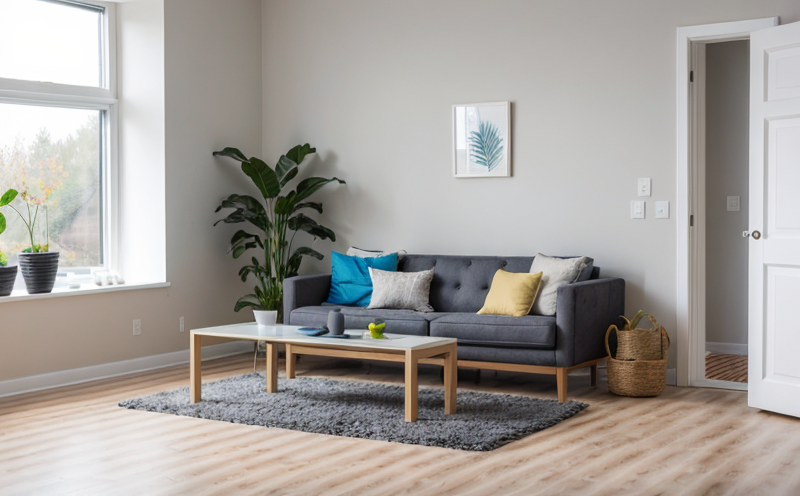EN 13053-1 Air Filter Performance Verification
The European Standard EN 13053-1 is a crucial document that outlines procedures for the performance verification of air filters, focusing on their filtration efficiency. This standard is widely used in industries where indoor air quality plays a pivotal role, such as HVAC (Heating, Ventilation, and Air Conditioning), healthcare facilities, and commercial buildings.
The primary purpose of this service is to ensure that air filters meet the required performance standards set by EN 13053-1. This involves rigorous testing using defined methodologies to verify the filter’s efficiency in removing particulate matter from the air. The standard covers a variety of tests including initial penetration, resistance to airflow, and dust loading.
Initial penetration testing checks whether the filter can effectively prevent particles from passing through it. Resistance to airflow measures the pressure drop across the filter which is critical for maintaining efficient operation without excessive power consumption. Dust loading assesses how much particulate matter a filter can hold before its performance degrades significantly.
The testing process typically begins with the selection of appropriate test dust, which may vary depending on the specific requirements and industry standards. For instance, ISO 16890 specifies different types of test dust suitable for various applications. The air flow through the filter is then measured using precision instruments such as differential pressure gauges.
Following the test run, the captured particulate matter must be analyzed to determine its mass and size distribution. This helps in understanding not only how well the filter performs but also which sizes of particles it captures most effectively. The results are compared against the expected values derived from the standard, providing insights into the filter’s efficiency.
Once all tests have been completed, a comprehensive report is generated detailing the findings and any discrepancies observed during the testing process. This document serves as a crucial reference for quality control teams, compliance officers, and R&D engineers responsible for maintaining high standards of indoor air quality.
Air filters play an essential role in HVAC systems by purifying the air before it circulates through buildings. Ensuring that these filters meet EN 13053-1 specifications guarantees that they operate efficiently and effectively, thereby enhancing overall building performance and occupant health. This service is particularly important for facilities where maintaining optimal indoor air quality is paramount.
For instance, in hospitals, where air filtration can significantly impact patient recovery rates, ensuring compliance with this standard becomes even more critical. Similarly, in commercial spaces, the comfort and well-being of employees or visitors are greatly enhanced by meeting these stringent requirements.
Benefits
- Enhanced Indoor Air Quality: By verifying filter performance according to EN 13053-1, we ensure that the air entering your facility is cleaner and safer for everyone involved.
- Compliance with Standards: This service helps you meet regulatory requirements, ensuring legal compliance and protection against potential penalties.
- Improved Efficiency: Our testing ensures that filters operate efficiently without unnecessary pressure drop, leading to reduced energy consumption and operational costs.
- Prolonged Filter Lifespan: Proper verification helps in identifying any issues early on, which can extend the life of your HVAC system components.
Customer Impact and Satisfaction
- Increased Customer Trust: Demonstrating compliance with internationally recognized standards builds trust among clients and stakeholders.
- Better Decision Making: Accurate testing provides valuable data that helps in making informed decisions regarding HVAC system upgrades or replacements.
- Potential Cost Savings: By identifying inefficiencies early, you can avoid costly repairs or replacements down the line.
- Enhanced Brand Reputation: A commitment to maintaining high standards reflects well on your business and encourages further engagement from clients.
Environmental and Sustainability Contributions
The use of air filters that comply with EN 13053-1 contributes significantly to environmental sustainability. Efficient filtration reduces the amount of particulate matter released into the environment, which can have harmful effects on both human health and ecosystems.
Incorporating this service into your maintenance routine helps in reducing waste by ensuring that filters are used optimally until their end-of-life. This not only extends the lifecycle of equipment but also minimizes the need for frequent replacements, thereby saving resources and reducing landfill contributions.
Furthermore, by optimizing air flow and filter efficiency, this service aids in lowering energy consumption within HVAC systems, which ultimately results in lower carbon emissions from building operations.





